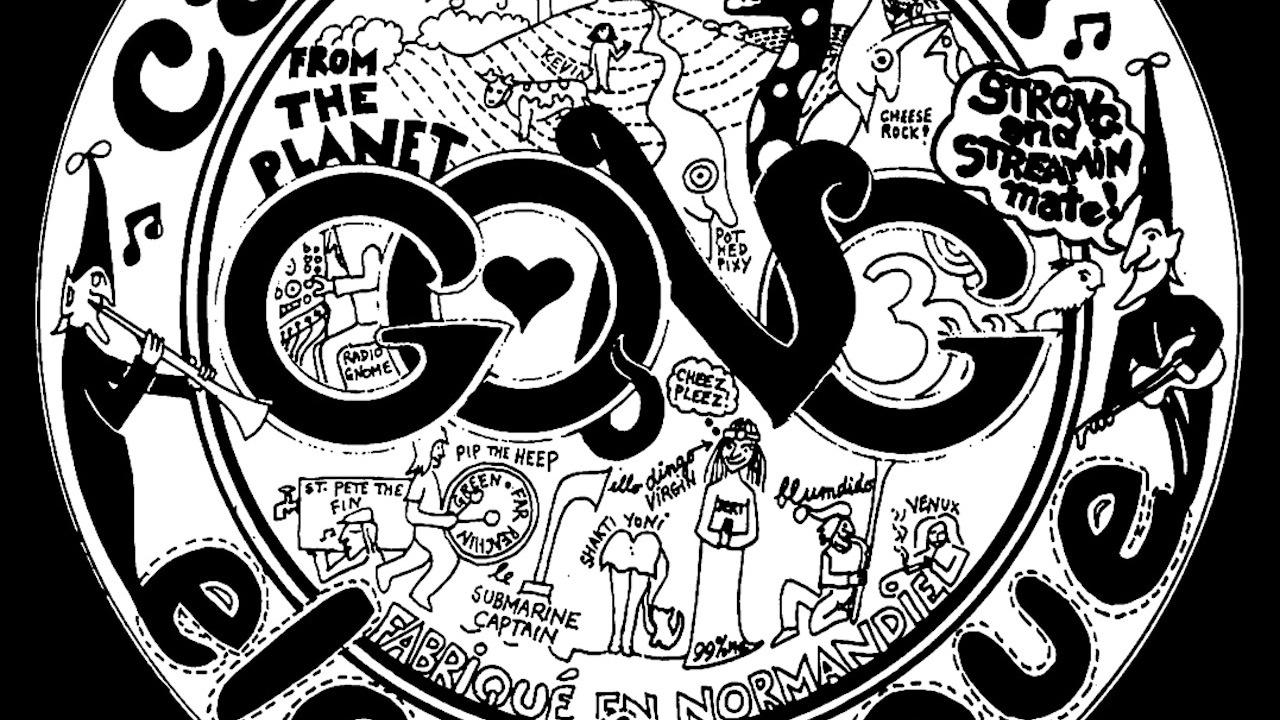You can trust Louder
As Virgin Records pointed out in 1974, there were several ways of parting with 59p. You could buy a puncture repair kit, a pound of mushrooms or, for the hernia-stricken on a budget, a second-hand truss. Better still, raved the press ad, why not try Gong’s Camembert Electrique, a full album for the same price as the latest Wombles single?
It was a tactic that Virgin had already employed in the UK for The Faust Tapes. Then, on the back of recent LPs Flying Teapot and Angel’s Egg, they took the opportunity to give Gong’s earlier work a similar push. The upshot of all this low-charge marketing was that Gong, led by hippie anarchist Daevid Allen, became the nation’s favourite new cult band.
Initially released in 1971 on outré French label BYG, Camembert Electrique is a busy outcrop of the artistic freedoms of the 60s. And, naturally, the drugs that went with them. It also marks the first real manifestation of Allen’s Planet Gong mythology, an ongoing dialogue between humans and an interstellar race of Pot Head Pixies. As you may have already surmised, they were a group with a dippy sense of the ridiculous.
Since his days as a reluctant guitarist in the first incarnation of Soft Machine, Allen had dedicated his creative life to the search for something new. Some facets of psychedelia soon became trite, but Allen was endlessly fascinated by the possibilities of a blank musical canvas, projecting onto it his own Dada vision of free jazz, tape-loop experiments and digressive wordplay.
Camembert Electrique has all these things and more. There’s trancey ambience (three-piece suite I’ve Bin Stone Before/Mister Long Shanks/O Mother), hallucinatory oddness (I Am Your Fantasy, delivered in breathy tones by “space whisperer” Gilli Smyth) and squawky bebop (Tropical Fish/Selene). Nonsense lyrics rub up against simple mantras that run deeper. Pulsing quasars settle into rhythmic grooves that, on Fohat Digs Holes In Space, serve as a prototype for rave culture.
Holding it all together is a loose structure of rock’n’roll, best heard on the riff-heavy twosome of You Can’t Kill Me and Tried So Hard. For all its strangeness, Camembert Electrique is a surprisingly accessible album. And, given his recent death, a timely reminder of Allen’s unique legacy./o:p
Sign up below to get the latest from Classic Rock, plus exclusive special offers, direct to your inbox!
Freelance writer for Classic Rock since 2008, and sister title Prog since its inception in 2009. Regular contributor to Uncut magazine for over 20 years. Other clients include Word magazine, Record Collector, The Guardian, Sunday Times, The Telegraph and When Saturday Comes. Alongside Marc Riley, co-presenter of long-running A-Z Of David Bowie podcast. Also appears twice a week on Riley’s BBC6 radio show, rifling through old copies of the NME and Melody Maker in the Parallel Universe slot. Designed Aston Villa’s kit during a previous life as a sportswear designer. Geezer Butler told him he loved the all-black away strip.


